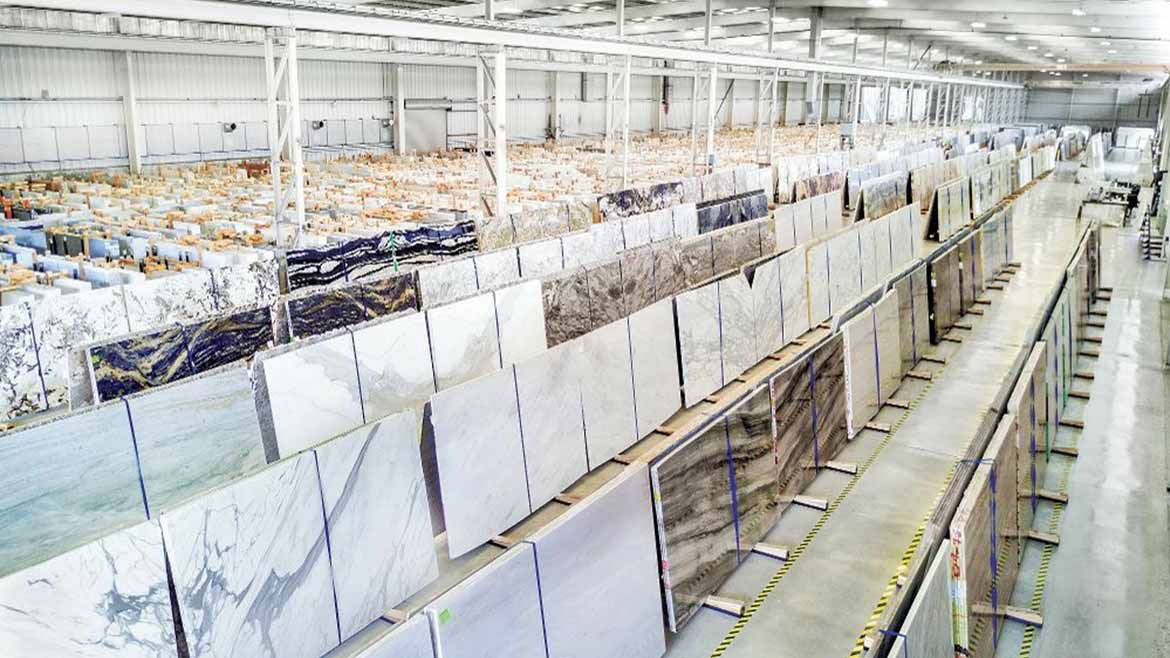Granite vs. Quartz : Exploring the Pros and Cons
When it comes to choosing the perfect countertop for your kitchen or bathroom, two popular options often come to mind: granite and quartz. These natural stone surfaces offer durability, beauty, and functionality, but they also have distinct characteristics that set them apart. In this blog post, we will delve into the pros and cons of granite and quartz countertops, helping you make an informed decision for your home.
Pros of Granite Countertops:
- Timeless Elegance: Granite countertops exude a classic, luxurious appeal that can enhance the aesthetic of any space. Each slab of granite is unique, showcasing natural variations in color and pattern, making it a stunning addition to your kitchen or bathroom.
- Durability: Granite is a durable material that can withstand heat, scratches, and stains. With proper sealing and regular maintenance, granite countertops can last for decades, making them an excellent long-term investment.
- Resistant to Heat: Granite is heat resistant, allowing you to place hot pots and pans directly on the surface without worrying about damage. This heat resistance also makes granite an ideal choice for avid cooks or those who entertain frequently.
- Increased Home Value: Granite countertops are highly sought after by homebuyers due to their premium look and durability. Installing granite in your kitchen or bathroom can potentially increase the resale value of your home, making it an attractive option for homeowners.
Cons of Granite Countertops:
- Requires Maintenance: While granite is relatively low-maintenance, it does require periodic sealing to prevent staining and bacterial growth. Failing to seal the surface properly can lead to the absorption of liquids, potentially causing discoloration or damage.
- Susceptible to Cracks: Although granite is durable, it can crack if subjected to heavy impact or excessive force. Care should be taken when handling heavy objects or sharp utensils to avoid any damage to the surface.
- Limited Color Choices: While granite offers a wide range of colors and patterns, it may not offer the same variety as quartz. If you have a specific color scheme in mind for your kitchen or bathroom, you might find more options with quartz countertops.
Pros of Quartz Countertops:
- Versatile Design Options: Quartz countertops are engineered stone surfaces, meaning they are manufactured by combining natural quartz with resins and pigments. This process allows for a vast array of colors, patterns, and finishes, giving you more design flexibility.
- Low Maintenance: Unlike granite, quartz countertops are non-porous and do not require sealing. This feature makes them highly resistant to staining and bacterial growth, making cleaning a breeze.
- Durability: Quartz is known for its strength and durability. It is less prone to cracks and chips compared to granite, making it an excellent choice for high-traffic areas or households with active families.
- Consistent Appearance: Since quartz countertops are manufactured, they offer a uniform and consistent appearance throughout the slab. This aspect can be appealing to those who prefer a more predictable and controlled aesthetic.
Cons of Quartz Countertops:
- Vulnerability to Heat: Unlike granite, quartz is not as heat resistant. Placing hot objects directly on the surface can cause discoloration or damage. It is recommended to use trivets or hot pads to protect the countertop.
- Price: Quartz countertops can be more expensive than granite, primarily due to the manufacturing process and the wide variety of design options available. If you have a tight budget, granite might be a more cost-effective choice.
Choosing between granite and quartz countertops ultimately depends on your specific needs, preferences, and budget. Granite offers timeless beauty, durability, and increased home value but requires periodic maintenance. On the other hand, quartz provides versatility, durability and consistency. Get in touch with us today to discuss your project needs and budget requirements.

